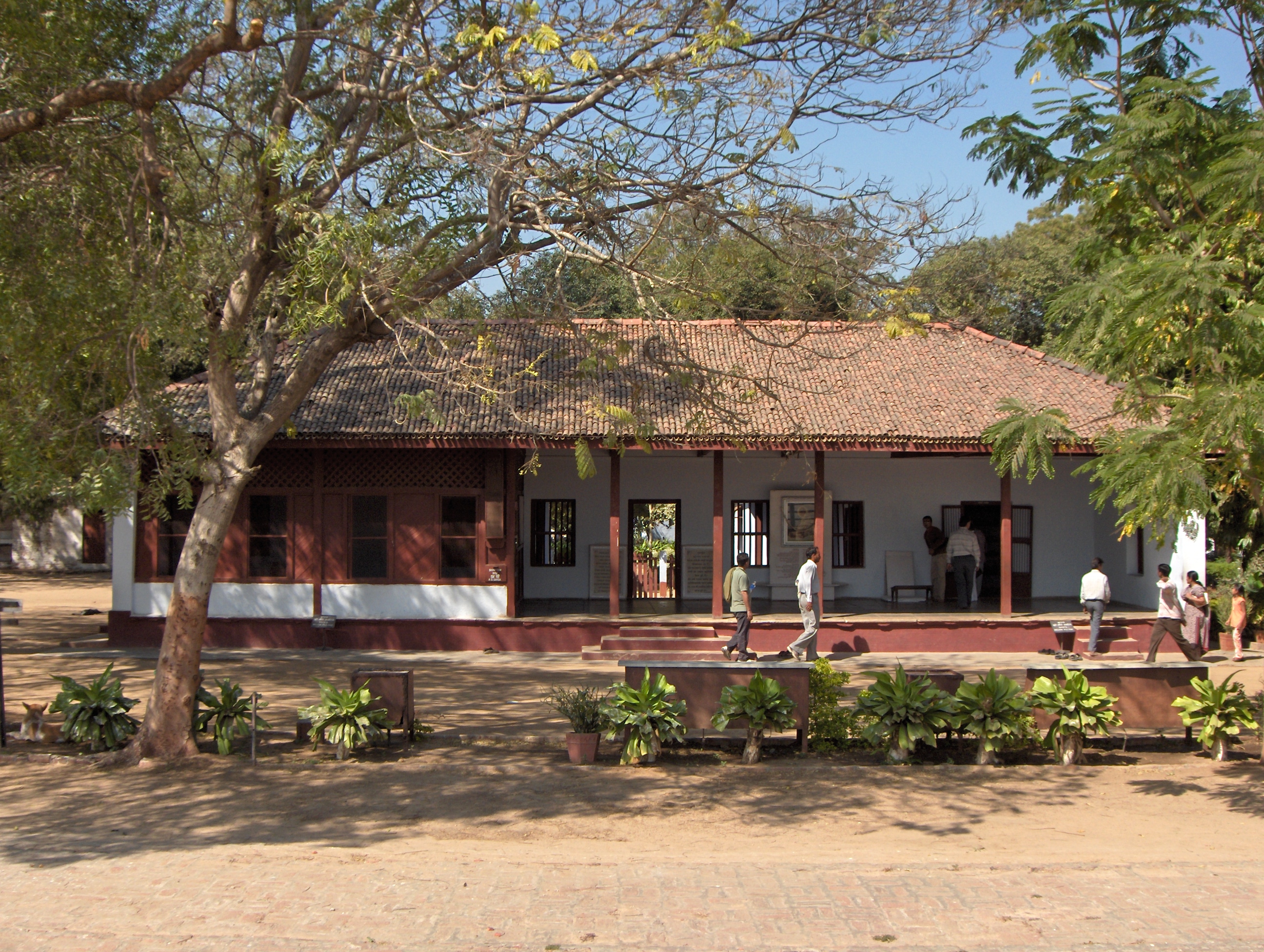|
Divine Life Society
The Divine Life Society (DLS) is a Hindu spiritual organisation and an ashram, founded by Swami Sivananda Saraswati in 1936, at Muni Ki Reti, Rishikesh, India. Today it has branches around the world, the headquarters being situated in Rishikesh. Also, many disciples of Swami Sivananda have started independent organisations in Mauritius, the US, Australia, Canada, Malaysia, South Africa, South America, and Europe. Aims Its aim is to disseminate spiritual knowledge in the following ways: * through publication of books, pamphlets and magazines on the subjects of Yoga and Vedanta * holding and arranging spiritual conferences and discourses (Satsang) * establishing training centers for the practice of Yoga * enabling aspirants to develop their spiritual lives via systematic training in yoga and philosophy * establishing charitable organisations * through the preservation of the ancient traditions and cultural practices of India History In 1936, after returning from a pilgrimage, Sw ... [...More Info...] [...Related Items...] OR: [Wikipedia] [Google] [Baidu] |
Swami Sivananda
Sivananda Saraswati (or Swami Sivananda; 8 September 1887 – 14 July 1963) was a yoga guru, a Hindu spiritual teacher, and a proponent of Vedanta. Sivananda was born Kuppuswami in Pattamadai, in the Tirunelveli district of Tamil Nadu. He studied medicine and served in British Malaya as a physician for several years before taking up monasticism. He was the founder of the Divine Life Society (DLS) in 1936, Yoga-Vedanta Forest Academy (1948) and author of over 200 books on yoga, Vedanta, and a variety of subjects. He established Sivananda Ashram, the headquarters of the DLS, on the bank of the Ganges at Muni Ki Reti, from Rishikesh, and lived most of his life there. Sivananda Yoga, the yoga form propagated by his disciple Vishnudevananda, is now spread in many parts of the world through Sivananda Yoga Vedanta Centres. These centres are not affiliated with Sivananda's ashrams, which are run by the Divine Life Society. Biography Early life Swami Sivananda was bor ... [...More Info...] [...Related Items...] OR: [Wikipedia] [Google] [Baidu] |
Tehri Garhwal District
Tehri Garhwal is a district in the hill state of Uttarakhand, India. Its administrative headquarters is at New Tehri. The district has a population of 618, 931 (2011 census), a 2.35% increase over the previous decade. It is the 7th ranked district of Uttarakhand by population. It is surrounded by Rudraprayag District in the east, Dehradun District in the west, Uttarkashi District in the north, and Pauri Garhwal District in the south. Tehri Garhwal is a part of the Himalayas. Etymology The name ''Tehri'' has been derived from ''Trihari'', signifying a place that washes away the three types of sins – sins born out of Mansa, Vacha and Karmana or thought, word and deed, respectively. ''Garh'' in Hindi means fort. History Early Prior to 888 CE, the region was divided into 52 which were ruled by independent kings. These were brought into one province by Kanakpal, a prince of Malwa. Kanakpal, on his visit to Badrinath, had met the then mightiest king Bhanu Pratap who later marr ... [...More Info...] [...Related Items...] OR: [Wikipedia] [Google] [Baidu] |
Organisations Based In Uttarakhand
An organization or organisation (Commonwealth English; see spelling differences), is an entity—such as a company, an institution, or an association—comprising one or more people and having a particular purpose. The word is derived from the Greek word ''organon'', which means tool or instrument, musical instrument, and organ. Types There are a variety of legal types of organizations, including corporations, governments, non-governmental organizations, political organizations, international organizations, armed forces, charities, not-for-profit corporations, partnerships, cooperatives, and educational institutions, etc. A hybrid organization is a body that operates in both the public sector and the private sector simultaneously, fulfilling public duties and developing commercial market activities. A voluntary association is an organization consisting of volunteers. Such organizations may be able to operate without legal formalities, depending on jurisdiction, incl ... [...More Info...] [...Related Items...] OR: [Wikipedia] [Google] [Baidu] |
Religious Organizations Established In 1936
Religion is usually defined as a social-cultural system of designated behaviors and practices, morals, beliefs, worldviews, texts, sanctified places, prophecies, ethics, or organizations, that generally relates humanity to supernatural, transcendental, and spiritual elements; however, there is no scholarly consensus over what precisely constitutes a religion. Different religions may or may not contain various elements ranging from the divine, sacred things, faith,Tillich, P. (1957) ''Dynamics of faith''. Harper Perennial; (p. 1). a supernatural being or supernatural beings or "some sort of ultimacy and transcendence that will provide norms and power for the rest of life". Religious practices may include rituals, sermons, commemoration or veneration (of deities or saints), sacrifices, festivals, feasts, trances, initiations, funerary services, matrimonial services, meditation, prayer, music, art, dance, public service, or other aspects of human culture. Religions ha ... [...More Info...] [...Related Items...] OR: [Wikipedia] [Google] [Baidu] |
Ashrams
An ashram ( sa, आश्रम, ) is a spiritual hermitage or a monastery in Indian religions. Etymology The Sanskrit noun is a thematic nominal derivative from the root 'toil' (< *''ḱremh2'') with the prefix 'towards.' An ashram is a place where one strives towards a goal in a disciplined manner. Such a goal could be ascetic, spiritual, yogic or any other. Overview [...More Info...] [...Related Items...] OR: [Wikipedia] [Google] [Baidu] |
Organisations Based In Dehradun
An organization or organisation (Commonwealth English; see spelling differences), is an entity—such as a company, an institution, or an association—comprising one or more people and having a particular purpose. The word is derived from the Greek word ''organon'', which means tool or instrument, musical instrument, and organ. Types There are a variety of legal types of organizations, including corporations, governments, non-governmental organizations, political organizations, international organizations, armed forces, charities, not-for-profit corporations, partnerships, cooperatives, and educational institutions, etc. A hybrid organization is a body that operates in both the public sector and the private sector simultaneously, fulfilling public duties and developing commercial market activities. A voluntary association is an organization consisting of volunteers. Such organizations may be able to operate without legal formalities, depending on jurisdiction, incl ... [...More Info...] [...Related Items...] OR: [Wikipedia] [Google] [Baidu] |
Hindu New Religious Movements
Hindus (; ) are people who religiously adhere to Hinduism. Jeffery D. Long (2007), A Vision for Hinduism, IB Tauris, , pages 35–37 Historically, the term has also been used as a geographical, cultural, and later religious identifier for people living in the Indian subcontinent. The term ''"Hindu"'' traces back to Old Persian which derived these names from the Sanskrit name ''Sindhu'' (सिन्धु ), referring to the river Indus. The Greek cognates of the same terms are "''Indus''" (for the river) and "''India''" (for the land of the river). The term "''Hindu''" also implied a geographic, ethnic or cultural identifier for people living in the Indian subcontinent around or beyond the Sindhu (Indus) River. By the 16th century CE, the term began to refer to residents of the subcontinent who were not Turkic or Muslims. Hindoo is an archaic spelling variant, whose use today is considered derogatory. The historical development of Hindu self-identity within the local I ... [...More Info...] [...Related Items...] OR: [Wikipedia] [Google] [Baidu] |
International Hindu Organizations
International is an adjective (also used as a noun) meaning "between nations". International may also refer to: Music Albums * ''International'' (Kevin Michael album), 2011 * ''International'' (New Order album), 2002 * ''International'' (The Three Degrees album), 1975 *''International'', 2018 album by L'Algérino Songs * The Internationale, the left-wing anthem * "International" (Chase & Status song), 2014 * "International", by Adventures in Stereo from ''Monomania'', 2000 * "International", by Brass Construction from ''Renegades'', 1984 * "International", by Thomas Leer from ''The Scale of Ten'', 1985 * "International", by Kevin Michael from ''International'' (Kevin Michael album), 2011 * "International", by McGuinness Flint from ''McGuinness Flint'', 1970 * "International", by Orchestral Manoeuvres in the Dark from '' Dazzle Ships'', 1983 * "International (Serious)", by Estelle from '' All of Me'', 2012 Politics * Political international, any transnational organization ... [...More Info...] [...Related Items...] OR: [Wikipedia] [Google] [Baidu] |
Hindu Organisations Based In India
Hindus (; ) are people who religiously adhere to Hinduism. Jeffery D. Long (2007), A Vision for Hinduism, IB Tauris, , pages 35–37 Historically, the term has also been used as a geographical, cultural, and later religious identifier for people living in the Indian subcontinent. The term ''"Hindu"'' traces back to Old Persian which derived these names from the Sanskrit name ''Sindhu'' (सिन्धु ), referring to the river Indus. The Greek cognates of the same terms are "''Indus''" (for the river) and "''India''" (for the land of the river). The term "''Hindu''" also implied a geographic, ethnic or cultural identifier for people living in the Indian subcontinent around or beyond the Sindhu (Indus) River. By the 16th century CE, the term began to refer to residents of the subcontinent who were not Turkic or Muslims. Hindoo is an archaic spelling variant, whose use today is considered derogatory. The historical development of Hindu self-identity within the local I ... [...More Info...] [...Related Items...] OR: [Wikipedia] [Google] [Baidu] |
Survey Of Hindu Organisations
Hinduism is practiced and preached by many Hindu organisations, each of which follows the variants and perspectives of all or particular philosophy propagated and transferred through generations by saints. It is a peaceful religion. Hinduism may be more of a custom or tradition of that part of the world which the great epics of Hinduism are supposed to depict. Hinduism is based on the Vedas, some of which are humanity's oldest inscriptions on life and spirituality. They differ on how to achieve life's ultimate goal – '' Atma Jnana'' or self-realization. Devotees can choose any path depending on their individual natures. This is a list of notable organisations related to Hinduism, Hindu nationalism and Hindutva. Bharat darshan * Aditya Vahini * Akhil Vishv Hindu Ekta Manch *Akhil Bharatiya Akhara Parishad * Akonir Namghar * American Meditation Institute * Ananda Ashrama * Ananda Marga Pracaraka Samgha * Ananda World Brotherhood Colonies * Anbukkodimakkal Thirucchabai ** Li ... [...More Info...] [...Related Items...] OR: [Wikipedia] [Google] [Baidu] |
Interiors Of The Sivananda Temple, Divine Life Society, Muni Ki Reti, Rishikesh
''Interiors'' is a 1978 American drama film written and directed by Woody Allen. It stars Kristin Griffith, Mary Beth Hurt, Richard Jordan, Diane Keaton, E. G. Marshall, Geraldine Page, Maureen Stapleton, and Sam Waterston. Allen's first fully-fledged film in the drama genre, it was met with acclaim from critics. It received five Academy Award nominations, including Best Director, Best Original Screenplay (both for Allen), Best Actress (Page), and Best Supporting Actress (Stapleton). Page also won the BAFTA Film Award for Best Supporting Actress. Plot The film centers on the three children of Arthur (E. G. Marshall), a corporate attorney, and Eve ( Geraldine Page), an interior decorator. Renata (Diane Keaton) is a poet whose husband Frederick (Richard Jordan), a struggling writer, feels eclipsed by her success. Flyn (Kristin Griffith) is an actress who is away most of the time filming; the low quality of her films is an object of ridicule behind her back. Joey (Mary Beth ... [...More Info...] [...Related Items...] OR: [Wikipedia] [Google] [Baidu] |





.jpg)